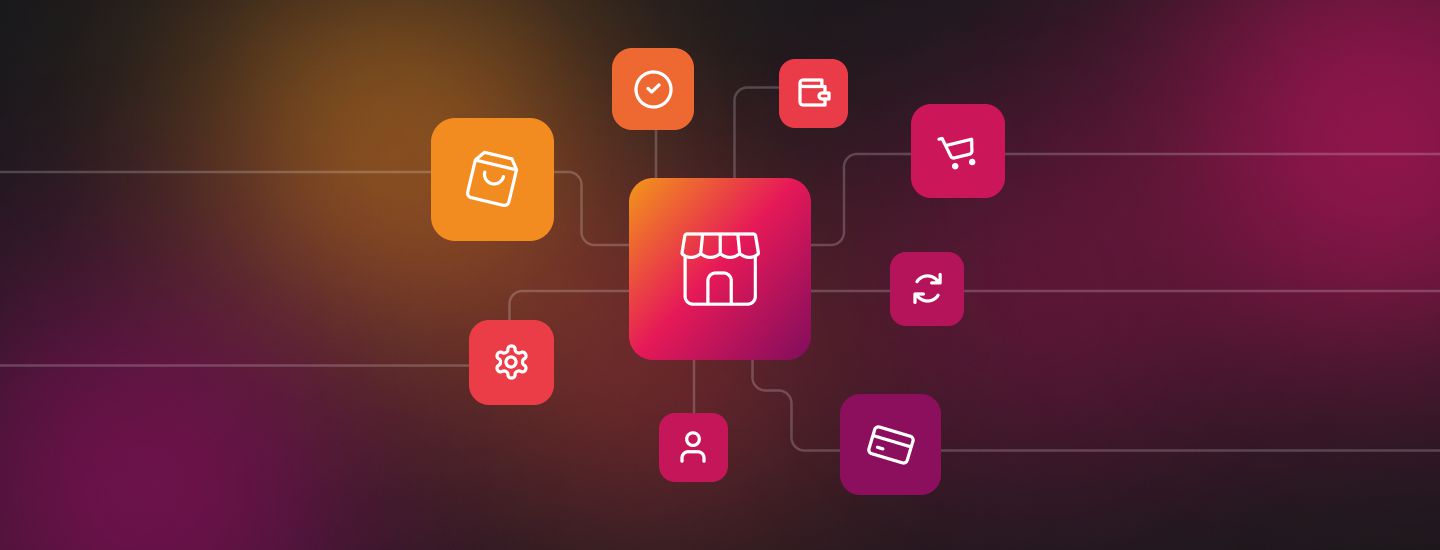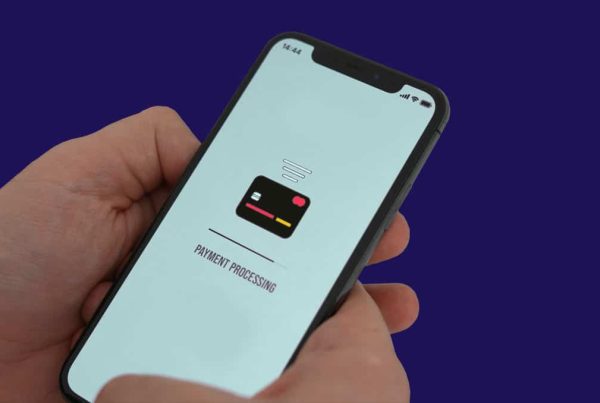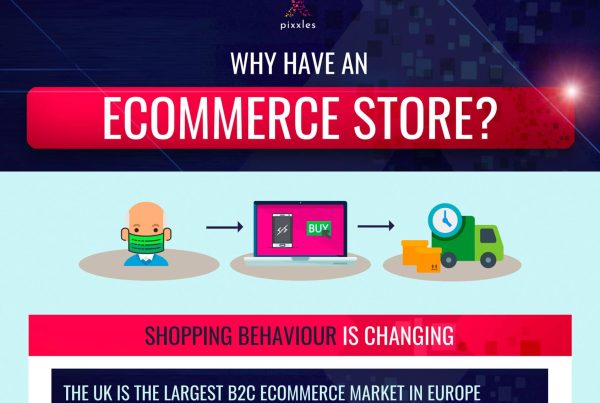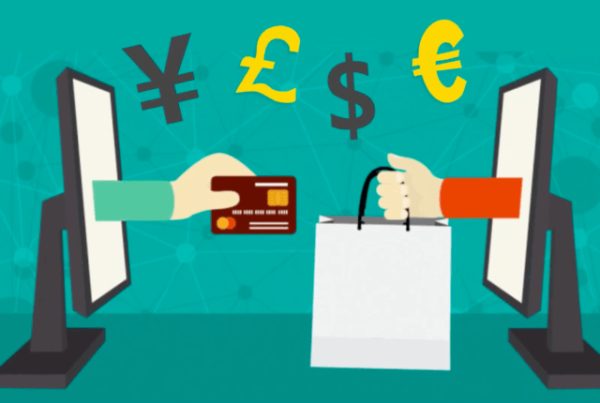The Definitive Guide To Merchant Services
The term ‘merchant services’ is so broad that you might have some confusion about what it means. To help shed some light on this topic, we’ve added our definition of the term below.
We’ve also put together a helpful guide that explains what merchant services are, how they work, and what they’re used for.
Keep reading to learn more.
Merchant Services Defined: What Are Merchant Services?
Simply put, merchant services are services that allow your business to process credit and debit card payments as well as electronic payments.
Another term for merchant services is credit card processing.
Your merchant services provider is the business responsible for managing payments that your customers make with credit cards and debit cards.
The Role of The Payment Service Provider
What payment providers do is bring the different financial institutions involved in a transaction together to make selling goods and services much easier for merchants.
Without payment service providers, commerce today as we know it, including ecommerce, wouldn’t be feasible.
The critical role of the payment provider is to:
Gather important transaction information from the merchant, send out that information, and relay the authorization or denial of the transaction back to the merchant and the customer.
This mechanic is why the merchant and customer see a payment approved or payment denied message during any transaction.
Collecting Funds
It is also the job of the payment provider to collect funds from the bank that issued the card and send those funds on to the merchant.
Services Vary Per Payment Provider
This is a very basic overview of what payment providers offer. Many providers do much more than this.
What type of services your payment provider offers naturally depends on what company you choose. Some companies only offer the basics.
More in-depth payment providers, such as Pixxles, provide a number of benefits, including transactional reports and live customer support via phone and email.
Who Needs Merchant Services?
Anyone who wants to take credit card and debit card payments needs merchant services.
Likewise, if you plan on running an ecommerce store or using a Virtual Terminal for a small business, you’ll need to find a payment service provider.
What Are The Benefits of Merchant Services?
Merchant services allow you to take payments online, over the phone, in person, and through virtual terminals.
For those unfamiliar with virtual terminals, they are software applications that allow you to key in customer payment details and send invoices through your computer, phone, and tablet.
In other words, virtual terminals allow you to turn your computer, phone, and tablet into a credit card terminal.
Providing A Better Experience For Customers
Merchant services also allow you to offer a more sophisticated experience for your customers, so long as you have the right provider.
Features such as easy invoicing, transactional reports, and hassle-free integration with shopping carts in your ecommerce store give you more time to focus on what’s most important—running your business.
So, we certainly encourage you to find a provider who can offer you these benefits and more.
Pixxles’ Merchant Services
At Pixxles, we believe that offering a range of options to meet your needs and the needs of your customers is necessary.
To learn more about what benefits we currently offer and what we’re looking to expand into, please visit our Solutions page.
What Other Benefits Do Merchant Services Provide?
Although taking payments from customers is the central purpose of merchant services, it’s also essential to keep track of your transactions.
We’ve mentioned transactional reports a couple of times above. We’ll add that our dashboard allows you to access deposit statement reports and chargeback reports as well.
Regarding Shopping Cart Integration
Integrating your website with a shopping cart is a foundational step if you’re an ecommerce store owner.
At Pixxles, we offer integration with standard shopping carts for free. We also provide custom integrations.
For details about our custom solutions and how much they cost, please contact us.
Security and Compliance
Apart from what’s already been mentioned, security and compliance are two bedrock benefits that your payment service provider should deliver.
Monitoring your compliance and transaction activity helps protect you from fraud, chargebacks, fines, and penalties. This is critical to your business’s success.
We strongly recommend that you only work with a payment provider that actively monitors your transactions for security purposes and to ensure you remain compliant with regulatory standards.
Pixxles Is An Authorised E-Money Institution
Pixxles has the advantage of being authorised and regulated by the Financial Conduct Authority (FCA) as an Authorised E-Money Institution, meaning we don’t need a third-party license to provide our services.
Cutting out third parties allows us to effectively manage our customer relationships and remain directly accountable to you and the Regulator.
How Pixxles’s Merchant Services Keep You Safe
Keeping you on the right side of the rules and regulations will save you and your business from facing a lot of issues in the long run.
Pixxles keeps you and your customers safe in a number of ways.
- We monitor your compliance every step of the way.
- We protect your card transactions by complying with standards in the Payment Card Industry Data Security Standard (PCI DSS) and the Payment Services Directive 2 (PSD2).
- We comply with standards in the General Data Protection Regulation (GDPR).
- Our Compliance Team performs a Website Compliance Review to ensure you meet Card Scheme rules. We also help you fix the problems we find before you start accepting payments with us. Additional follow-up checks will occur regularly to keep your company safe.
- Our Risk Management team monitors your transactions to reduce payment card fraud and mitigate chargebacks.
Card Payment Processor Approval Process
An effective and skilled payment provider will handle your approval process correctly the first time.
Some merchant service companies will tell you that you’re approved before you are, which leaves you having to go somewhere else to get true approval.
This can delay your business operations and cause unnecessary hassle.
Our team of underwriters does their Due Diligence to ensure you that our yes means yes.
What Are Merchant Services Examples?
Here are the most common merchant service offerings available today.
Credit Card Processing
As we’ve already discussed, your payment provider will assist you with processing credit and debit card payments. This is par for the course as far as services go.
However, what types of currencies you are able to take depends on your payment provider.
Pixxles gives you the ability to accept 100+ currencies from customers.
How Credit Card Processing Works
Speaking of credit card processing, let’s take a brief look at how it works before returning to more merchant services examples.
While there is a lot of complex information about this subject, the basic mechanics of how credit card payments work are actually quite easy to follow.
First, The Payment Info Gets Sent To The Merchant’s Bank and Payment Processor
When a customer uses a credit or debit card to pay for goods or services, their payment information is sent to the merchant’s bank.
Then it’s sent from the merchant’s bank to the payment processor.
Second, The Customer’s Card Company Receives The Transaction Information
After receiving the information, the payment processor must send it to the customer’s credit or debit card company (for example, American Express). Note that Pixxles can process Visa and Mastercard.
Third, The Transaction Is Sent To The Customer’s Bank
Once the card company receives the transaction information, they send it to the bank that issued the card.
Fourth, The Information Is Sent Back To The Card Company and The Merchant’s Bank
If the bank that issued the card approves the transaction, then the card company receives a code that they send to the merchant’s bank.
Fifth, The Information Is Sent Back To The Merchant
Learn more about merchant payment processing.
The merchant’s bank then sends the information to the merchant, who can use it to print or email a receipt for the customer.
Virtual Terminal
Virtual terminals are very helpful if you don’t have an online store but need to accept remote payments. They are a valuable service offered by many payment service providers.
Through your virtual terminal, you’ll be able to accept payments from customers over the phone or through the mail. Your virtual terminal also allows you to send invoices.
Virtual Terminal vs Payment Gateway
Keep in mind that there is a difference between a virtual terminal and a payment gateway.
Virtual Terminal
A virtual terminal is what you use to manually enter credit card and debit card information when you get a phone order or mail order.
Virtual terminals do NOT have a customer-facing interface, such as a shopping cart on an ecommerce website.
Payment Gateway
A payment gateway, on the other hand, has an interface that customers can use.
It is common for ecommerce websites to use payment gateways to make transactions easier.
When someone makes a purchase on an ecommerce website, the website’s payment gateway uses a digital capture file to send the transaction information to the merchant’s bank.
The transaction request eventually gets sent to the issuing bank, i.e., the bank that issued the buyer’s card.
The issuing bank then either approves or denies the transactions and sends their answer back to the merchant’s bank and their payment gateway.
Side Note About Pixxles Virtual Terminal Benefits
With Pixxles, you can perform multiple functions through your virtual terminal transaction screen, which include but are not limited to:
Sending an email to your customers with a pay now button, securely storing card data, and setting up more than one user account with different permissions.
Real Time Account Updater Service
With our Real Time Account Updater Service, you will be able to update cardholder information without interruption. This is another merchant service example that shouldn’t be overlooked.
It’s inevitable that your customers will at some point lose or replace old credit cards and debit cards.
Being able to update customer payment information without having to contact them and without hassle on your part lets you focus on running other aspects of your business.
Payment Gateways – Ecommerce
This allows customers to make purchases on your ecommerce platform.
Online Transaction Processing
This allows you to manage customer orders, update your stock, and more.
Point of Sale System
This allows you to operate a cash register or a portable card machine.
How To Choose The Right Payment Service Provider
To determine if your preferred payment services provider is right for you, you’ll want to ask the following questions.
- What Card Brands Do You Process?
We strongly suggest you ask this since you don’t want to work with a payment provider who won’t allow you to take payments from the majority of your customers.
We process Visa and Mastercard at Pixxles.
- What Payment Methods Are Supported?
You’ll also want to ask what payment methods are supported since you need to be able to take payments from customers with the devices you have available.
You can see our Payment Processing solutions page to see a summary of what we offer.
- How Do You Monitor and Manage Risk?
Before committing to your preferred payment service provider, check to see who they are and how they do business if you haven’t already.
The central concern here is how are they going to protect you, your business, and your customers?
Pixxles keeps you and your customers safe and secure by complying with strict regulatory standards.
Our company is regulated as an Authorised E-Money Institution by the Financial Conduct Authority (FCA) in the UK.
Compliance is very serious to us, and we strive to ensure you are compliant too.
- What Kind of Reporting Will I Receive?
As a merchant, it’s important to have transactional reports, deposit statements, and chargeback reports so that you can improve the operation of your business.
Pixxles gives you access to these through your dashboard.
- What Are Your Fees and Terms?
Knowing how much you are going to be paying in fees is crucial before joining a payment service provider. Ask your preferred provider about them!
To learn more about our fees, visit our Payment Processing Pricing page.
Merchant Services Provider vs Merchant Account Provider
Keep in mind that there is a difference between merchant services providers and merchant account providers.
Merchant services providers offer a range of services, such as payments, ecommerce setups, and more.
Merchant account providers, by contrast, focus on helping you set up a merchant account so that you can accept card payments.
Pixxles is a comprehensive end-to-end payment processor for your online business as well as a digital bank.
What Is A Merchant Account?
A merchant account allows you to sell products and services to customers by holding your money after a transaction is initiated.
Only after the transaction has been approved is the money deposited into your business bank account.
Merchant Accounts vs Business Bank Accounts
Please note that merchant accounts and business bank accounts are two different things.
A merchant account is a special type of business bank account that ensures your customers have enough funds to buy from you, after which their purchases will be authorised.
Merchant accounts have to abide by certain conditions unique to them.
In fact, you can’t access your merchant account. That’s not its purpose.
This feature differentiates it markedly from a normal business bank account, which is where your company’s funds go to be used for business transactions.
If you want to take card payments and electronic payments without a payment service provider, then you’ll need both a merchant account and a business bank account.
Using A Merchant Account Instead of A Payment Service Provider?
Some people choose to use merchant accounts rather than work with a payment processor, but nowadays, many businesses don’t need merchant accounts.
Payment service providers like Pixxles perform a similar role to merchant accounts since they
hold the money from card transactions until the transaction is authorised.
Payment Service Provider Advantages
One advantage of this approach is that shared merchant accounts are more cost-friendly for small businesses.
Another advantage is that it’s usually easier to get started with a payment service provider than it is to start your own merchant account.








